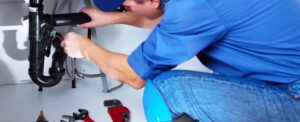▷5 Tips To Repair Your Water Heater In San Diego
5 Tips To Repair Your Water Heater In San Diego
A malfunctioning water heater can be a real hassle, especially when you rely on it for your daily hot water needs. From chilly showers to difficulties with household chores, a broken water heater can disrupt your daily routine. However, before you rush to call a professional, there are several DIY tips you can try to repair your water heater and potentially save some money in the process. In this article, we’ll explore five essential tips for repairing your water heater.
Check the Power Supply
Before diving into any repairs, ensure that your water heater is properly connected to the power supply. Start by checking the circuit breaker or fuse box to make sure the breaker hasn’t tripped or the fuse hasn’t blown. If you find that the breaker is off or the fuse is blown, reset the breaker or replace the fuse. Sometimes, a simple power interruption can cause your water heater to stop working.
Inspect the Thermostat
The thermostat is a crucial component of your water heater, as it regulates the temperature of the water. If you’re experiencing issues with hot water, the thermostat might be the culprit. Begin by turning the thermostat down and then back up to the desired temperature. Sometimes, it can get stuck, and this simple adjustment can fix the problem.
If adjusting the thermostat doesn’t resolve the issue, consider testing it with a multimeter to ensure it’s functioning correctly. If it’s faulty, replacing it is a relatively straightforward DIY task that can restore your water heater’s functionality.
Check the Pressure Relief Valve
The pressure relief valve is responsible for releasing excess pressure from the water heater to prevent damage. When this valve malfunctions, it can lead to dangerous pressure buildup, potentially causing a catastrophic failure. To check the pressure relief valve, turn off the power supply to the water heater and the cold water supply valve. Then, place a bucket under the valve and carefully lift the lever. If you hear a rush of water and the valve closes tightly afterward, it’s working correctly. If not, it may need to be replaced.
Inspect the Anode Rod
The anode rod is a sacrificial component in your water heater that attracts corrosive elements to protect the tank from rust and corrosion. Over time, this rod can deteriorate, leading to tank corrosion and leaks. Inspect the anode rod by locating it at the top of the tank and removing it using a socket wrench. If it’s heavily corroded or less than half an inch thick, it’s time for a replacement. Replacing the anode rod can significantly extend the lifespan of your water heater.
Flush the Tank
Sediment buildup in the bottom of the tank is a common issue that can affect the efficiency of your water heater. To address this problem, flush the tank at least once a year. To do this, turn off the power supply and cold water inlet, attach a hose to the drain valve, and open the valve to let the water and sediment flow into a drain or bucket. Flushing the tank can improve the heater’s performance and extend its lifespan.
FAQs
Can I Repair My Gas Water Heater Myself?
While some minor repairs can be done by homeowners, it’s essential to exercise caution when working on a gas water heater. If you’re not experienced with gas appliances, it’s best to leave repairs to a qualified technician. Gas water heaters can be dangerous if mishandled.
Why Is My Water Heater Making A Popping Or Cracking Noise?
Popping or cracking sounds in your water heater are often caused by sediment buildup at the bottom of the tank. As the sediment heats up, it creates these noises. Flushing the tank as mentioned in tip #5 can help alleviate this issue.
When Should I Consider Replacing My Water Heater Instead Of Repairing It?
If your water heater is old, consistently requires repairs, or has a major issue like a leaking tank, it’s often more cost-effective to replace it with a newer, energy-efficient model. Newer models are not only more reliable but also more energy-efficient, which can save you money on your utility bills in the long run.
Call Home Pro Plumbing at (858) 251-7070 for a free consultation if you think there may be a water leak, or use our website to contact us.
Conclusion
Home Pro Plumbing offers tools like subsurface cameras for inspecting pipelines for leaks that you can’t even see. We are experts at fixing hidden plumbing issues and we know where to look for common issues. Even better, we offer yearly safety and plumbing inspections so that we may identify potential problems before they even materialize.
Give Home Pro Plumbing a call right away to learn more about how our experts can help with leak detection in San Diego, CA.
Our Plumbing & Leak Detection Services
Related Posts

▷5 Benefits of Hydro Jet Plumbing: A Comprehensive Guide In San Diego
5 Benefits of Hydro Jet Plumbing: A Comprehensive Guide In San Diego Hydrojet plumbing is a…

▷Essential Tips for Installing a Heat Pump Water Heater In San Diego
Essential Tips for Installing a Heat Pump Water Heater In San Diego Did you know…

